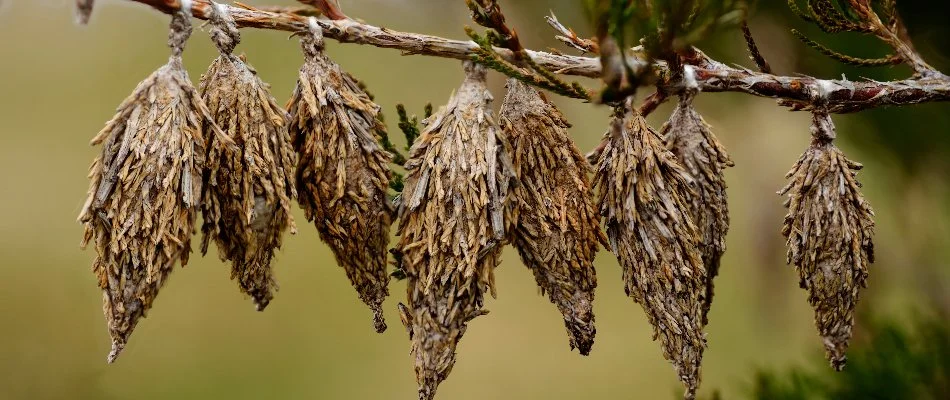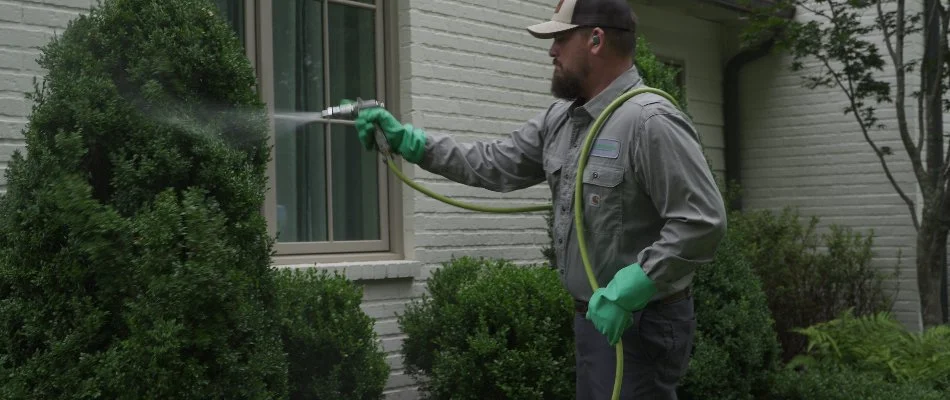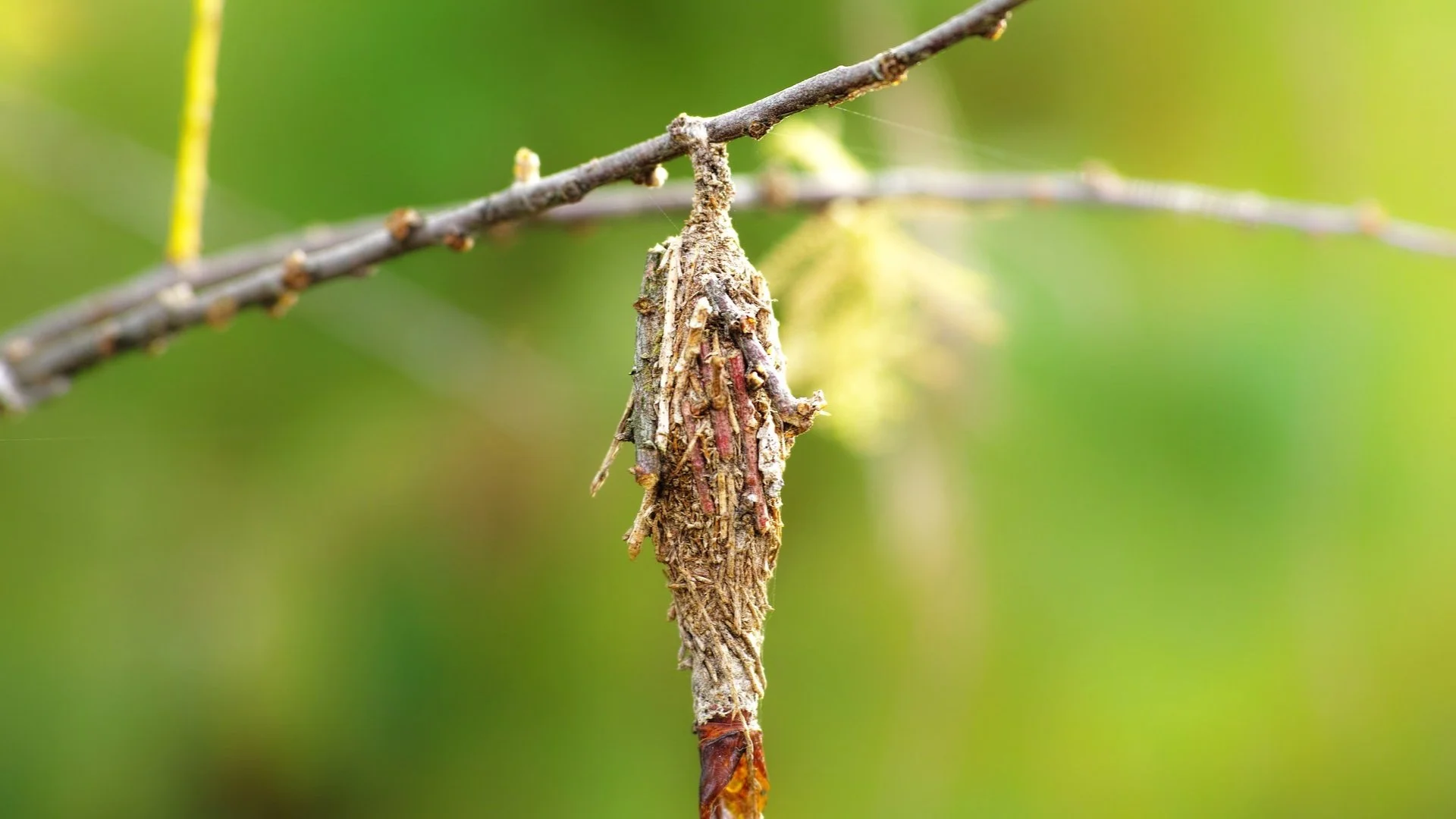Bagworms are a common plant pest in Tennessee that can cause significant damage to your trees and shrubs. These caterpillars feed on the foliage of your plants, and if the infestation is severe, they can cause extensive defoliation. Bagworms are most problematic during the summer months when they are actively feeding and growing. If you notice signs of bagworms on your plants, such as bags made of debris and silk hanging from the branches or defoliation, it is important to contact professionals and schedule a curative treatment as soon as possible. Additionally, you can schedule tree and shrub fertilization treatments to help your plants recover from any damage caused by bagworms.
What are bagworms, and what kind of damage do they cause?

Bagworms are a type of caterpillar that can cause significant damage to your plants in Tennessee. They are known for their distinctive bags, which they construct out of silk and plant material. These bags serve as protective coverings for the caterpillars as they feed on the foliage of your plants. Bagworms have a voracious appetite and can quickly defoliate your trees and shrubs. The damage caused by bagworms can be severe, especially if left untreated. Defoliation weakens your plants, making them more susceptible to other stressors, plus drastically detracts from their appearance. In severe cases, bagworms can even kill your plants, especially if they are already weakened or stressed.
When do bagworms become most problematic?
Bagworms are most problematic during the summer months when they are actively feeding and growing. They typically hatch in late spring or early summer and begin feeding on the foliage of your plants. As they grow, they construct their distinctive bags, which they carry with them as they move around your plants. Bagworms can be difficult to detect, especially in the early stages of their development. However, as they grow and their bags become more visible, you may notice them hanging from the branches of your plants. It is important to monitor your plants closely during the summer months and take action as soon as you notice any signs of bagworms.
What should you do if you notice signs of bagworms on your plants?

If you notice signs of bagworms on your plants, it is important to take action as soon as possible. The first step is to contact professionals and schedule a curative treatment. Professionals have the knowledge and experience to effectively treat bagworms and prevent further damage to your plants. In addition to curative treatments, you can schedule tree and shrub fertilization to help nurse them back to health from any damage caused by bagworms. Fertilization treatments provide your plants with the nutrients they need to recover and grow strong. They can also help your plants become more resistant to future infestations of bagworms and other pests.
Call us today to schedule our tree and shrub insect control service!
At Herbi-Systems, we understand the importance of protecting your trees and shrubs from harmful insects like bagworms. That's why we offer our tree and shrub insect control service, which is designed to eliminate these pests and prevent them from causing any further damage to your plants. You can also take advantage of our preventative insect control treatments to prevent a future infestation, plus tree and shrub fertilization to supply them with vital nutrients. With us, you can trust that we use only the highest quality products and techniques to ensure that your plants are protected from bagworms and other harmful insects.
We offer this service to residential and commercial property owners, as well as HOAs, in Memphis, Collierville, Germantown, and throughout the surrounding areas of Tennessee. Don't let bagworms damage your plants - call us today at (901) 382-5296 to schedule our tree and shrub insect control service, and keep your plants healthy and thriving.



Comments (0)
Thanks for your comment!
Thanks for your feedback! Your comments have been successfully submitted! Please note, all comments require admin approval prior to display.
Error submitting comment!
There is a problem with your comment, please see below and try again.